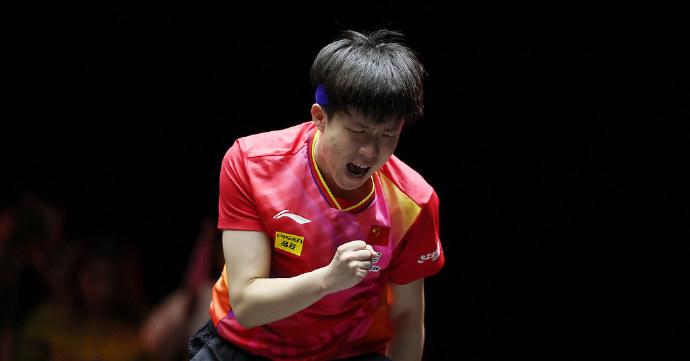A Dominant Display: Wang Chuqin's Rise to WTT Finals Glory
In a commanding performance at the WTT Finals men’s singles championship, Wang Chuqin defeated Zhang Benzhi 4-0, securing his third consecutive WTT Finals victory and the year-end world 1 ranking.

The 2024 WTT Finals men’s singles championship match between Wang Chuqin and Zhang Benzhi highlighted the evolving dynamics of modern table tennis in China. Wang’s masterful service game and tactical approach proved decisive in his straight-sets victory.
Wang’s strategic brilliance centered on his service game, which effectively neutralized Zhang’s typically strong receiving abilities. By positioning himself on the right side of the table and utilizing a combination of left-handed serves with right-handed blocking, Wang created a visual barrier that left Zhang struggling to read and return serves consistently.
The opening game set the tone for the entire match. Wang’s aggressive first-three-ball play prevented Zhang from establishing any rhythm or entering into sustained rallies. This tactical decision proved crucial, as Wang recognized Zhang’s preference for longer exchanges and systematically denied him those opportunities.
The technical disparity became increasingly apparent as the match progressed. Zhang found himself unable to effectively counter Wang’s serves, often forced into defensive positions that resulted in easy points for his opponent. The match’s brevity - concluding in just 29 minutes - spoke volumes about Wang’s dominance and tactical execution.
Zhang’s usually reliable backhand variation shots failed to materialize under the constant pressure. His attempts to adjust his receiving position and approach were repeatedly thwarted by Wang’s precision serving and aggressive follow-up play. The frustration became visible in Zhang’s body language, particularly evident in the final points where his resistance notably waned.
Wang’s performance embodied the evolution of modern table tennis, where service mastery and first-attack dominance have become increasingly crucial. His ability to control points from the very first ball while maintaining consistent pressure throughout rallies demonstrated why he has secured his position at the pinnacle of the sport.
While some observers noted the match’s relative lack of extended rallies, this was less a reflection of defensive weakness and more a testament to Wang’s tactical superiority and execution. His ability to win points efficiently, often within the first three shots, showcased the effectiveness of his aggressive style.
This victory not only secured Wang’s third consecutive WTT Finals title but also confirmed his status as the world’s premier player. His systematic dismantling of a talented opponent like Zhang revealed the gap he has created between himself and his competitors through technical excellence and tactical innovation.
The match serves as a case study in modern table tennis strategy, where the ability to dominate service games and control early ball exchanges has become paramount. Wang’s performance suggests that success at the highest level increasingly depends on mastering these aspects of play, potentially signaling a broader evolution in the sport’s competitive landscape.